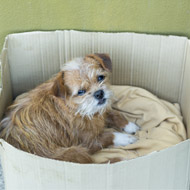Plans to regulate Scottish rescue centres welcomed

The ADCH has long campaigned for better regulation of the animal rescue sector.
The Association of Dogs and Cats Homes (ADCH) has welcomed the Scottish Government’s 2018-1019 Programme, which commits to regulating the nation’s animal sanctuaries and rescue centres.
The organisation said: “ADCH welcomes the Programme for Government, which commits to pushing forward with regulations to ensure there’s a minimum mandatory standard of care across all Scottish rescue centres and sanctuaries.”
The Scottish Government’s planned regulations, announced last week, are based on ADCH’s Minimum Standards. They will make Scotland the first nation in the United Kingdom to regulate the sector.
ADCH has long campaigned for better regulation of the animal rescue sector. The association comprises more than 130 national and local charities, including Edinburgh Dog & Cat Home and the Scottish SPCA.
“Currently, anyone can set up an animal rescue or sanctuary without having to meet any minimum welfare standards,” commented ADCH chairman Claire Horton. “Whilst the vast majority of rescue centres operate with the appropriate love, care and dedication for their animals, we want to crack down on the few organisations in the sector that are motivated by all the wrong reasons.
“Setting up a responsible rescue centre is also a huge undertaking, so having clear regulations in place will ensure anyone considering founding one is in a position to manage it.”
In 2017, the importance of regulating the industry was brought to the fore, when the remains of emaciated cats and dogs were found in a freezer at the Ayrshire Ark animal centre. Owner Zara Brown was jailed after admitting nine charges including causing unnecessary suffering, exposing dogs to unsatisfactory conditions and failure to provide the necessary nutrition and veterinary treatment.
“We must never allow a situation like Ayrshire Ark to happen again,” Claire continued. “The Government’s proposed regulations will go a long way to ensuring this, by requiring rescue centres and animal sanctuaries to be properly inspected and to comply with regular inspections.
“This would ensure a high standard of animal welfare across Scotland and ADCH hopes this regulation model will go on be adopted by England, Wales and Northern Ireland.”



 The Veterinary Medicines Directorate (VMD) is inviting applications from veterinary students to attend a one-week extramural studies (EMS) placement in July 2026.
The Veterinary Medicines Directorate (VMD) is inviting applications from veterinary students to attend a one-week extramural studies (EMS) placement in July 2026.